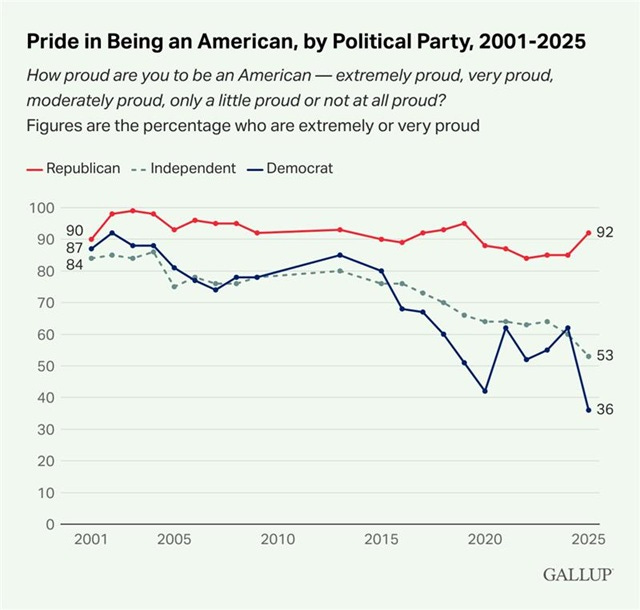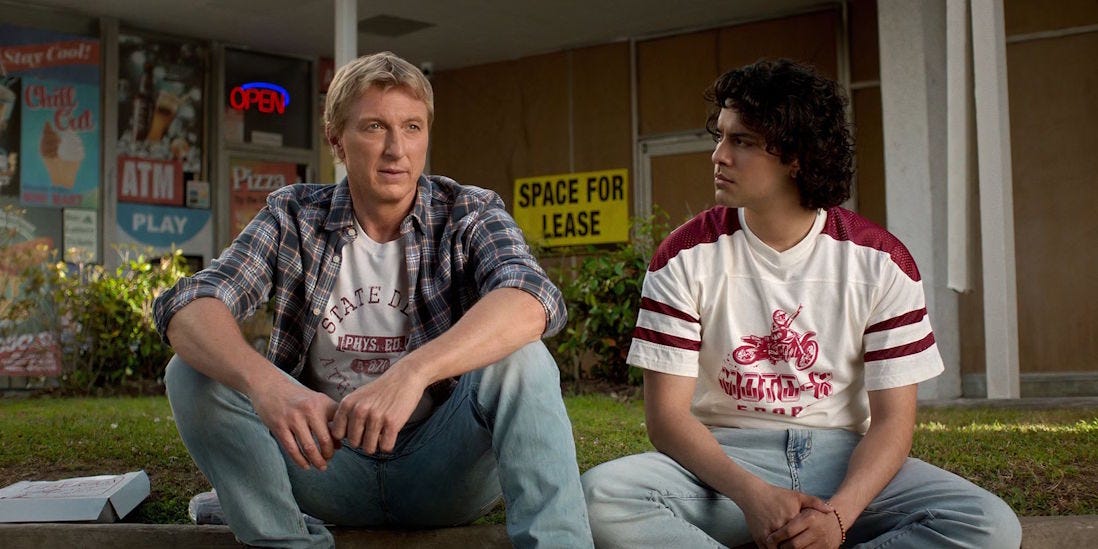How to take our country back
The America you grew up in is under attack from technologies that we ourselves invented.

I remember a moment during the 2012 presidential campaign, when a woman sobbed on camera and cried “I want my America back!”. It bewildered me at the time; as far as I could tell, the America of 2012 was the same America I grew up in — unruly, anti-intellectual, independent to a fault, but kind to their neighbors, hard-working, fiercely protective of their freedoms, and generally accepting of those who were different. Like many others, I shrugged and concluded that the woman who was sobbing on camera was simply upset about the fact that the President was Black.
Thirteen years later, I’m still not sure exactly what that woman was upset about. But I definitely feel that the shoe is on the other foot. Today I look out at my own country and I feel like an intense sense of loss and longing for something that may no longer exist. The shared values that I felt permeated and undergirded my culture haven’t vanished completely, but it feels like among a large segment of the populace, they’ve been replaced with politicized anger.
There is data to support this feeling. Algan et al. (2025) use AI to analyze the sentiment of tweets — both a random sample of tweets, and the tweets of a few hundred of the most prominent political shouters in America (whom they label “partisan citizens”). They find that from around 2016-2019, Americans of both political stripes became much angrier online:

Around that same time, Democrats and political Independents became much less proud to be American:

And a well-publicized poll in 2023 found that Americans prioritize community involvement and tolerance less, and money more, than they did in earlier years:
Some 38% of respondents said patriotism was very important to them, and 39% said religion was very important. That was down sharply from when the Journal first asked the question in 1998, when 70% deemed patriotism to be very important, and 62% said so of religion…The share of Americans who say that having children, involvement in their community and hard work are very important values has also fallen. Tolerance for others, deemed very important by 80% of Americans as recently as four years ago, has fallen to 58% since then.
I’m not the only one who feels this way, either. Right now I’m in Japan promoting my book, and on the 4th of July I gave a talk at a university. A Japanese woman who had lived in America in the 1990s told me that she found American society to be generous, kind, tolerant, and helpful. But when she goes back now, she said, she sees a lot of anger and the culture feels a lot colder.
It’s tempting to look at these data points and anecdotes and conclude that the old America has been swept away by the tide of history, like the Roman Empire or the Qing Dynasty, replaced with something unrecognizable and baleful that just happens to exist on the same plot of land. But I think there’s also evidence that the America I grew up in has not been entirely replaced — that it still exists, battered and a bit shrunken, obscured by the constant flood of social media hate.
For example, when the 2023 poll came out, for instance, Erin Norman wrote a skeptical post, arguing that the shift in values was overstated:
If you don’t make faulty comparisons to previous surveys, the data in the new WSJ/NORC poll is encouraging. Self-fulfillment…is important to 91 percent of Americans. Hard work…tops the list, with 94 percent saying it is important to them…Seventy percent value marriage and 65 percent value having children…90 percent of Americans believe “tolerance for others” is important, and over half qualify it as “very” important…
Perhaps the anonymity of online communication has shown us we aren’t exactly who we thought we were and that there is more diversity of thought in America than stereotypes would suggest. But the WSJ/NORC poll shows that the big-tent, melting pot version of America is very much alive and well.
And a 2024 survey by the Cato Institute found that most Americans of both parties still say they value basic American freedoms:

And at times, the America I grew up in pops up to remind me that it still exists. A few weeks ago I attended one of the largest protests in American history, and everyone was waving American flags and talking about freedom:
And while social media is filled with shouting and hate, mass media still generally portrays the same country I remember from my youth — or even an improved version. The best example of this is the TV show Cobra Kai, which just concluded a 6-season run. Cobra Kai is a follow-up to the Karate Kid movies of the 1980s, focusing on the character of Johnny Lawrence, one of the antagonists from the original 1984 film. Now an aging adult, Johnny belatedly learns to temper the violent, toxic masculinity of his youth with adult values of personal responsibility, community, family, and so on, without ever losing his inherent toughness.
The show is one of the most heartwarming things I’ve ever seen on a screen, and I strongly recommend it. It doesn’t portray a return to the America of the 1980s, but rather an alternate future for that America — a projection of how the country could have kept getting better in the ways it seemed to be getting better back then. The cast is diverse, but racial politics never dominates the story.1 Social media exists, but merely as an adjunct for real life instead of a fantasy-land that absorbs young people’s every waking minute. Real-life community and healthy relationships end up winning out over everything else.
This isn’t a vision of what America is actually like in the 2020s. We can’t simply put down our phones and “touch grass” and go live in the world of Cobra Kai, because that country doesn’t exist. In the real America, young people are glued to TikTok all day, and romantic relationships in high school are now rare, and an Ecuadorian family like that of the protagonist Miguel Diaz would probably worry about the immigration system in some regard. There’s no Trump in Cobra Kai, and no ICE raids. Covid seems never to have happened, and there’s no mention of the BLM protests or the racial tensions of the late 2010s.
Instead, I think fantasies like Cobra Kai show us visions of an America we could have, if we could overcome the forces that filled us with rage and made us so many of us despise our nation. And being the technological determinist that I am, I think we should regard our enemies first and foremost as technological. Our country’s most potent and terrible enemy is in our own pockets.
And having located that enemy, I believe that we can pretty quickly see how to strike it where it lives, and take our country back.




